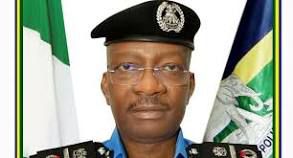During a recent trip from Awka to Enugu and back, through the Enugu-Onitsha expressway, I experienced first-hand the plight of commuters on the road and what the masses pass through in their daily basis trip around the S’East Zone.
The journey started from Aroma junction in Awka, through Nnamdi Azikiwe University, Awka, down to Amansea, before exiting Anambra.
But it was a surprise that at such a short stretch of road, which was less than four kilometres, this reporter encountered a Nigeria Security and Civil Defense Corps (NSCDC) checkpoint, a Federal Road Safety Corps (FRSC) checkpoint, a navy checkpoint, a mobile police checkpoint and more, before exiting into Enugu State, which didn’t have less.
However, the high number of security checks could be attributed to the high insecurity in the Southeast. Above that, this reporter however noticed that the number of checkpoints is not the problem, but the attitude of the security men at the various checkpoints, who have turned them into a money-making venture.
Physical count showed that there are at least 20 checkpoints of various security agencies, operating from Awka to Enugu, through the Expressway, which is about 50 kilometers.
This leaves drivers with their legs constantly on the brake pedal as the number leaves at least one checkpoint in every two kilometres made.
For Instance, during the return journey, around Oji River, I encountered huge traffic at a checkpoint manned by mobile police operatives, but despite being cleared, the huge traffic ahead continued until it was ascertained that this was a result of traffic caused by an army checkpoint ahead, which overflowed down to another checkpoint. This is evidence of how near the checkpoints are to each other.
Commuters decried the frustration they face on the road every day. While some decried the confidence with which the security operatives block the roads and return to their cubicles, leaving errand boys to attend to motorists, others complained about the monetary extortion, while others were more concerned about the pain they inflict on travellers.
“I’m still surprised why the governors of Enugu and Anambra State and other states in the zone have not addressed this problem military and police operatives are causing on our roads. How can you have all these checkpoints just from Awka to Enugu?
“What is most worrisome is that these people are not doing anything related to security. They just block the road and cause traffic jam everywhere.
They only remember to search you if the boys working for them ask you to give money and you refuse. Sometimes, they just sit down under the shade, while those local boys harass drivers and park anyone who refuses to give money to them.
Mr Kelechi Okoro is a driver with Eastern Mass Transit, a transport company that majorly plies routes around the South East. His complaint was about the difficulty drivers face in moving around the zone because of the heavy presence of military and police operatives.
“My greatest unhappiness is about those boys. Because they are running errands for military men, if they look at you and feel you are not obeying them, they just park you. Very saucy people.”
For Mr Celestine Ugwunnwa, a passenger in Okoro’s bus, he is more concerned that as uncomfortable and hot as the bus is, the driver can never be able to speed up, to ease the discomfort of the passengers, as he has to keep applying brakes from one checkpoint to another.
“It is true that there is insecurity, but is this the best way to police the zone? Do we have to be punished so hard, before we can be policed? See how they just block the road.
They are not conducting any checks, so long as they get money from their errand boys who are working for them. The only time they come out is when those boys report to them that a driver refuses to give money, or when they hear the sound of the siren, showing that a big man is coming. This is too bad.”
A staff of Nnamdi Azikiwe University, Awka, who spoke to EKWE ANAEDO, but didn’t give his permission for his name to appear in print said: “You people who are journalists, you need to write about the trouble we face to get to the office every day.
“Just from Awka to Unizik in Agu Awka, you meet Civil Defense, road safety, police and Navy. You people should ask what business the Navy has on our roads.
Those navy people you see at Stanel Filling Station are people who were enlisted to guard that property, but instead of guarding the business place, they block the road and collect money from motorists. Is that how to provide security?
Those navy people you see at Stanel Filling Station are people who were enlisted to guard that property, but instead of guarding the business place, they block the road and collect money from motorists. Is that how to provide security?
In December 2022, Anambra State Deputy Governor, Dr Onyekachi Ibezim had a major clash with military personnel at a roadblock at Amansea, an Anambra
community that shares a common border with Enugu State. Ibezim saw a long traffic of vehicles held at the checkpoint.
The traffic was that of holidaymakers, who were coming home from various places for the Christmas celebration. He immediately ordered the dismantling of the roadblocks and the opening of the road for the free flow of traffic.
The incident which happened during the yuletide quickly eased off traffic for home-going holidaymakers to continue their journey, but shortly after, the checkpoint resurfaced, and the operatives became even more daring than before.
As the yuletide commences, many believe that with the penchant of Igbo people to come home for Christmas, this period may just be another boom for security operatives who man checkpoints across the Southeast.
There are several questions as to the efficacy of the security tactics adopted by security agents in tackling the insecurity in the Southeast, and just as Celestine Ugwunnwa, a passenger questioned, it is believed that there should be a better way to tackle the insecurity in the Southeast, other than roadblocks, which can be seen as policing to punish.
But the spokesperson of the Nigerian Army, Brigadier General Onyema Nwachukwu could not be reached as at the time of filing this report.




